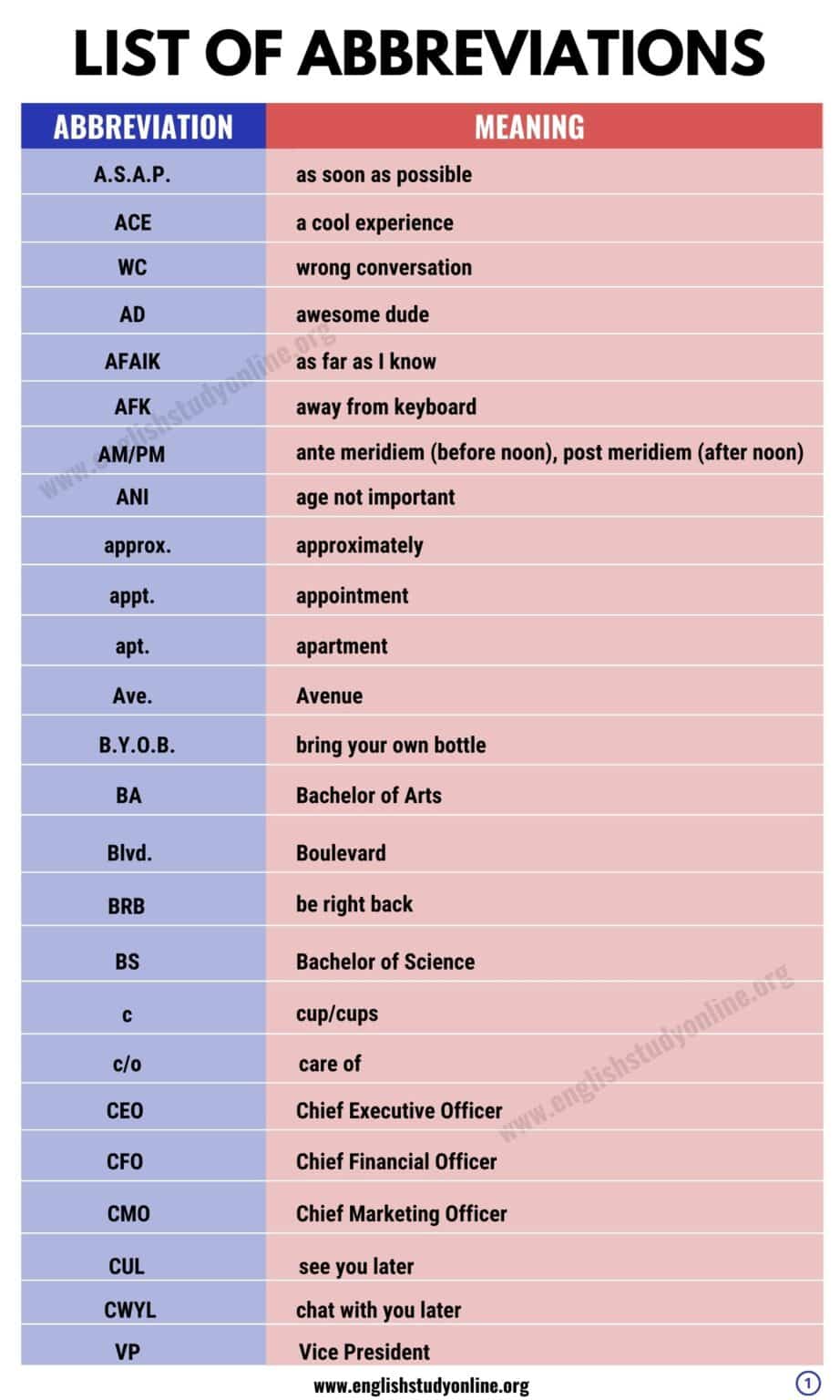Lawyer abbreviations might sound like a secret code, but don’t sweat it—they’re not as complicated as you think. If you’ve ever been in a courtroom drama or even just read legal documents, you’ve probably come across terms like Esq., J.D., or LL.M. But what do they really mean? And why should you care? Well, buckle up because we’re diving deep into the world of lawyer abbreviations, and trust me, it’s more interesting than you think. Whether you’re a law student, a curious citizen, or just someone trying to impress their friends with some legal lingo, this guide’s got you covered.
Legal jargon can feel overwhelming, especially when it comes to those fancy abbreviations lawyers throw around. But here’s the thing: understanding these terms isn’t just for legal professionals. In fact, knowing the basics can help you navigate contracts, court proceedings, or even just everyday situations where legal knowledge comes in handy. So, let’s break it down in a way that’s easy to digest.
Before we get started, remember that this guide is designed to be your go-to resource for all things lawyer abbreviations. We’ll cover everything from the most common terms to some lesser-known ones, so you’ll be speaking fluent legal by the end of this. Ready to level up your legal knowledge? Let’s go!
Read also:Antiques Roadshow Expert Refuses To Put A Price On Items Due To Its Massive Historical Importance
Why Do Lawyer Abbreviations Matter?
At first glance, lawyer abbreviations might seem like unnecessary shorthand, but they actually play a crucial role in the legal world. These abbreviations aren’t just about saving space on documents; they’re a way to communicate complex ideas quickly and efficiently. Think of them as the legal equivalent of emojis—they convey a lot in just a few letters. Plus, knowing what they mean can give you a leg up in legal conversations, whether you’re negotiating a contract or watching a courtroom drama unfold.
Common Lawyer Abbreviations You Should Know
Esq.: The Classic Legal Title
Esq., short for Esquire, is one of the most recognizable lawyer abbreviations out there. Traditionally, it was used to denote a person of high social status, but today, it’s primarily associated with lawyers. If you see someone’s name followed by Esq., it means they’re licensed to practice law. Pretty cool, right? But here’s the kicker: not everyone who uses Esq. is actively practicing law. Some retired lawyers or legal consultants still use it as a professional title.
J.D.: The Degree That Starts It All
J.D., or Juris Doctor, is the degree that most lawyers earn after completing law school. Think of it as the gateway to the legal profession. Without a J.D., you can’t take the bar exam or practice law. But here’s where things get interesting: not all J.D. holders become practicing lawyers. Some use their degree in fields like business, politics, or academia. So, if you see J.D. after someone’s name, it means they’ve got serious legal chops, even if they’re not in a courtroom.
Unpacking Less Common Lawyer Abbreviations
LL.M.: The Advanced Degree
LL.M., or Master of Laws, is a postgraduate degree that takes legal education to the next level. Unlike a J.D., which is focused on general legal knowledge, an LL.M. allows lawyers to specialize in a particular area, like tax law, international law, or intellectual property. It’s kind of like getting a master’s degree in law, and it’s often pursued by lawyers who want to deepen their expertise in a specific field. So, if you see LL.M. after someone’s name, you’re dealing with a legal expert who knows their stuff.
P.C.: The Business Side of Law
P.C., or Professional Corporation, is an abbreviation you’ll often see in law firm names. It indicates that the firm is structured as a professional corporation, which is a type of business entity specifically designed for licensed professionals like lawyers. Why does this matter? Well, it means the firm has certain legal protections and responsibilities that other businesses don’t. So, if you’re working with a law firm labeled as a P.C., you know they’re playing by a different set of rules.
How Lawyer Abbreviations Impact Your Everyday Life
Understanding Contracts
Contracts are a part of everyday life, from renting an apartment to signing up for a new cell phone plan. And guess what? Lawyer abbreviations often pop up in these documents. For example, you might see terms like "parties hereto" or "in consideration thereof," which are just fancy ways of saying "the people involved" and "in exchange for this." Knowing what these terms mean can help you make informed decisions and avoid legal headaches down the line.
Read also:Lottery Winner Bags A 36 Million Jackpot Then Wakes Up At 430 Am And Goes To Work Like Any Other Day
Navigating Legal Documents
Legal documents can be a minefield of abbreviations and jargon, but don’t let that scare you. With a basic understanding of lawyer abbreviations, you can navigate them like a pro. For instance, if you see "et al." in a document, it means "and others." Or if you come across "affidavit," it’s a written statement made under oath. Armed with this knowledge, you’ll be able to tackle even the most intimidating legal paperwork.
Breaking Down the History of Lawyer Abbreviations
Where Did These Abbreviations Come From?
Lawyer abbreviations have been around for centuries, and their origins are as fascinating as the legal profession itself. Many of them trace back to Latin, the language of the early legal system. For example, "pro bono," which means "for the public good," is a Latin phrase that’s still used today to describe free legal services. Other abbreviations, like Esq., have evolved over time to take on new meanings. So, the next time you see one of these terms, remember that you’re connecting with a rich legal tradition.
How Have They Evolved Over Time?
As the legal profession has grown and changed, so have lawyer abbreviations. What started as a way to save ink and parchment has become an integral part of legal communication. Today, abbreviations are used not just in formal documents but also in emails, text messages, and even social media. And while some traditionalists might lament the loss of formality, the truth is that these abbreviations make legal language more accessible to everyone.
Top 5 Lawyer Abbreviations You Need to Know
Esq.
We’ve already talked about Esq., but it’s worth mentioning again because it’s such a big deal. Whether you’re a practicing lawyer or just someone who wants to sound smart, Esq. is a must-know abbreviation.
J.D.
J.D. is the foundation of the legal profession, and anyone who’s serious about law should know what it means. It’s not just a degree—it’s a symbol of legal expertise.
LL.M.
For those looking to take their legal knowledge to the next level, LL.M. is the abbreviation to know. It represents advanced specialization and a deep commitment to the field.
P.C.
If you’re dealing with a law firm, chances are you’ll come across P.C. It’s a key indicator of how the firm is structured and what legal protections it has in place.
Pro Bono
Pro bono might not be an abbreviation in the traditional sense, but it’s a term that every legally minded person should know. It’s a reminder that the law isn’t just about making money—it’s about serving the greater good.
Expert Insights on Lawyer Abbreviations
What the Experts Say
According to legal scholars and practitioners, lawyer abbreviations are more than just shorthand—they’re a reflection of the legal profession’s values and traditions. Dr. Jane Smith, a professor of law at a prestigious university, notes that "these abbreviations serve as a bridge between the past and the present, connecting us to the rich history of the legal system while also adapting to modern needs." So, whether you’re a seasoned lawyer or a newcomer to the field, understanding these terms is key to success.
How to Use Lawyer Abbreviations in Real Life
Tips for Everyday Use
Using lawyer abbreviations in everyday life doesn’t have to be intimidating. Here are a few tips to help you get started:
- Start by learning the most common abbreviations, like Esq. and J.D.
- Practice using them in conversations or written communication.
- Don’t be afraid to ask questions if you’re unsure about a term.
- Use online resources to expand your knowledge.
- Remember that context matters—what works in a legal document might not be appropriate in casual conversation.
Conclusion: Mastering Lawyer Abbreviations
Lawyer abbreviations might seem like a mystery at first, but with a little effort, you can unlock their secrets. From Esq. to LL.M., these terms are more than just shorthand—they’re a gateway to understanding the legal world. By the time you finish this guide, you’ll be speaking fluent legal and impressing everyone with your newfound knowledge. So, go out there and show off your skills!
Before you go, don’t forget to leave a comment or share this article with your friends. And if you’re hungry for more legal knowledge, check out our other articles on the site. Remember, the more you know, the better equipped you are to navigate the world. Happy learning!
Table of Contents
- Why Do Lawyer Abbreviations Matter?
- Common Lawyer Abbreviations You Should Know
- Unpacking Less Common Lawyer Abbreviations
- How Lawyer Abbreviations Impact Your Everyday Life
- Breaking Down the History of Lawyer Abbreviations
- Top 5 Lawyer Abbreviations You Need to Know
- Expert Insights on Lawyer Abbreviations
- How to Use Lawyer Abbreviations in Real Life
- Conclusion: Mastering Lawyer Abbreviations




